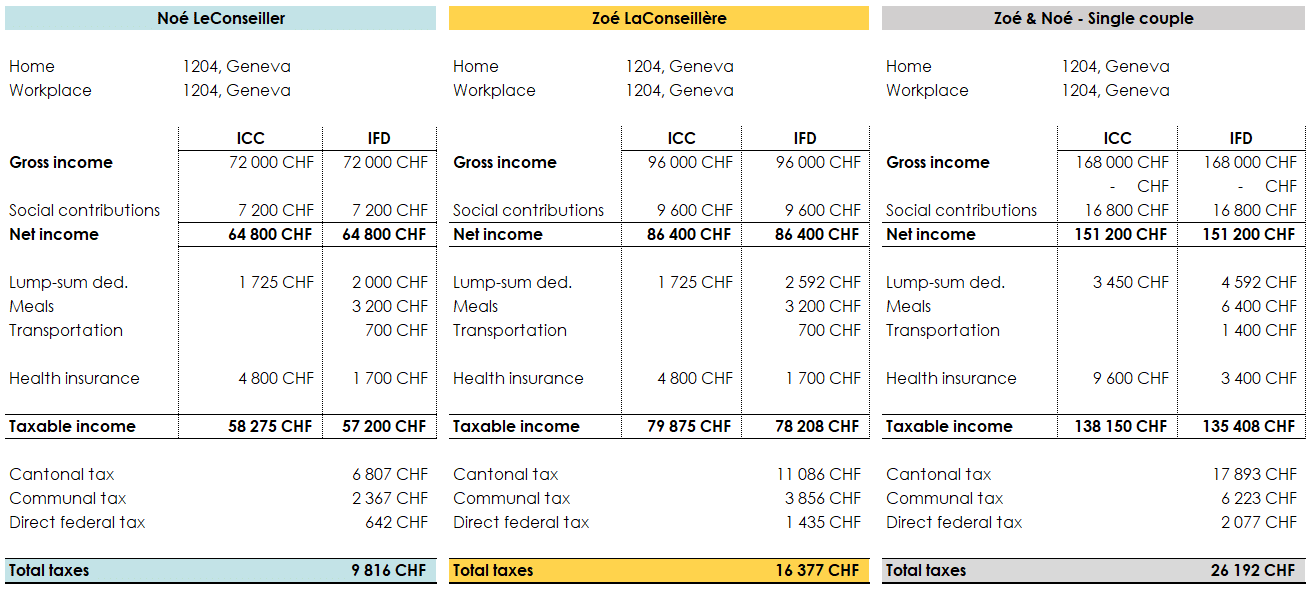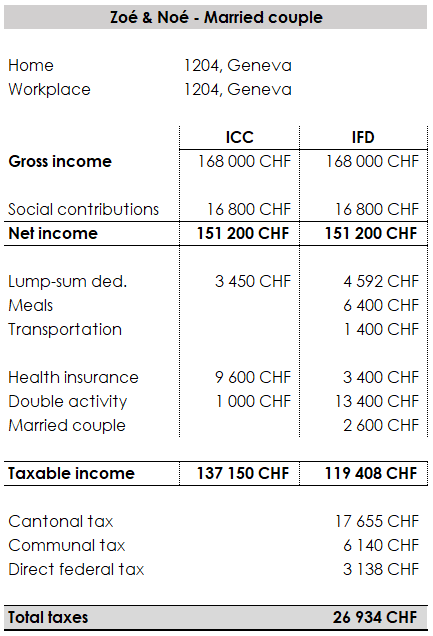How will marriage affect your taxes in Geneva?
Have you found your soul mate and are about to put the ring on her (or his) finger? A little voice in your head has reminded you that tax isn’t cool and you’ve come to the conclusion that even if marriage isn’t linked to tax, it might be a good idea to check?
I’m here to answer the question: will my taxes go up, down or perhaps stay the same after this major step? Oh, and if you’re not from Geneva, please note that taxes are specific to your canton. For the people of Vaud, we asked ourselves the same question: Tax and marriage in the canton of Vaud: is it a good idea?
To give you a clear and concise answer, I suggest we tackle the question as follows:
- A brief reminder of how tax works in the canton of Geneva
- Understanding the changes in calculating tax once you’re married
- Determine whether certain deductions will change after the marriage
- Then mix the last two points to draw a conclusion
How tax works in Geneva once you’re married?
Unlike the way tax is calculated in the canton of Vaud, the canton of Geneva did not want to make things easy. We have taken the time to provide all the necessary details in our dedicated article, but here we will focus on the difference between a single couple and a married couple.
The first thing to know is that you need to determine two very important things:
The taxable income
This is the income that will actually be taxed in Switzerland, and is made up of your salary, pensions, annuities and other interest and dividends.
The tax rate
This is the income used to calculate the tax rate. This rate may not be equal to your taxable income. For example, if you own a property abroad, your taxable income may be taxed at a higher rate than your income.
If we assume that your situation is fairly straightforward and that you are single, then your taxable income will be taxed at the rate of your income.
To simplify things, let’s say I’m living with my partner and earn a taxable income of CHF 58,200, whilst my partner is not working at the moment. My tax return as a single person would look like this:

Now, suppose I decide to marry her, the canton of Geneva will proceed to what is known as income splitting. This involves adding together the household incomes and dividing them by two to determine the tax rate.

In this example, the same income of CHF 58,200 would no longer be taxed at CHF 17.5% but at 8.5% – what a bargain!
In reality, it is not uncommon for both taxpayers to work, and this changes the situation. By dividing the total income, the higher salary will have a lower tax rate while the higher income will have a higher tax rate.
What conclusion can we draw from all this?
If you only had one thing to remember from all this, it’s that with this full splitting, the rule is simple: the greater the difference in income between the two taxpayers, the more advantageous the marriage will be from a tax point of view, and by extension, the closer the two incomes are, the smaller this advantage will be.
The tax rate is a large part of the answer, but there is another component that can change the picture somewhat: tax deductions in Geneva.
What tax deductions will change once I’m married?
In addition to the Geneva splitting, the canton, commune and Confederation offer certain deductions for married couples.
Cantonal and communal deductions in Geneva
At commune and canton level, only one deduction should be noted:
Deduction from the earnings of one of the spouses/partners
This deduction amounts to CHF 1,000 if both spouses are gainfully employed.
Federal deductions
Whether or not you live in Geneva, once you are married you will be entitled to two deductions:
Deduction from one spouse’s earnings
It works in the same way as for the canton, except that the amount is much higher: CHF 13,400.
Deduction for married couples
You will also be entitled to a deduction of CHF 2,600.
We’re beginning to get to the bottom of it. I’d like to suggest one last thing: take our example and show you exactly the difference before and after the wedding, taking into account all our explanations.
Example of a Genevan couple before and after marriage
In this final section, I’d like to analyse my situation and that of my wife Zoé. We both live in Geneva, and my wife has negotiated a salary of CHF 96,000, while I earn CHF 72,000.
Before marriage, here’s what our taxes looked like:

And this is what our taxes will look like after the wedding:

How to sum up? After so much research, calculation and writing, we’ve painfully come to the conclusion that in Geneva, unless there’s a very big difference in salary… Married or not married, it’s kiff kiff… Even I’m a little disappointed, but it was worth studying the question!
Remember, the situation here is simple:
- No children, no childcare costs
- No assets
- No property
- etc.
We cannot guarantee that our theory will be applicable to your situation if it is more complicated than ours. Please do not hesitate to contact us for a quick tax simulation specific to your situation.
Discover our new online platform to entrust us with your tax return!
Complete your 2023 tax return online!




In the blink of an eye!








